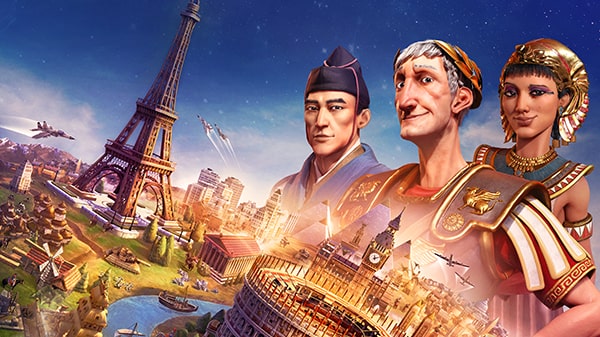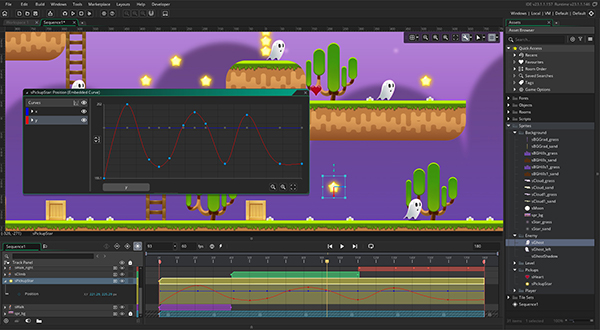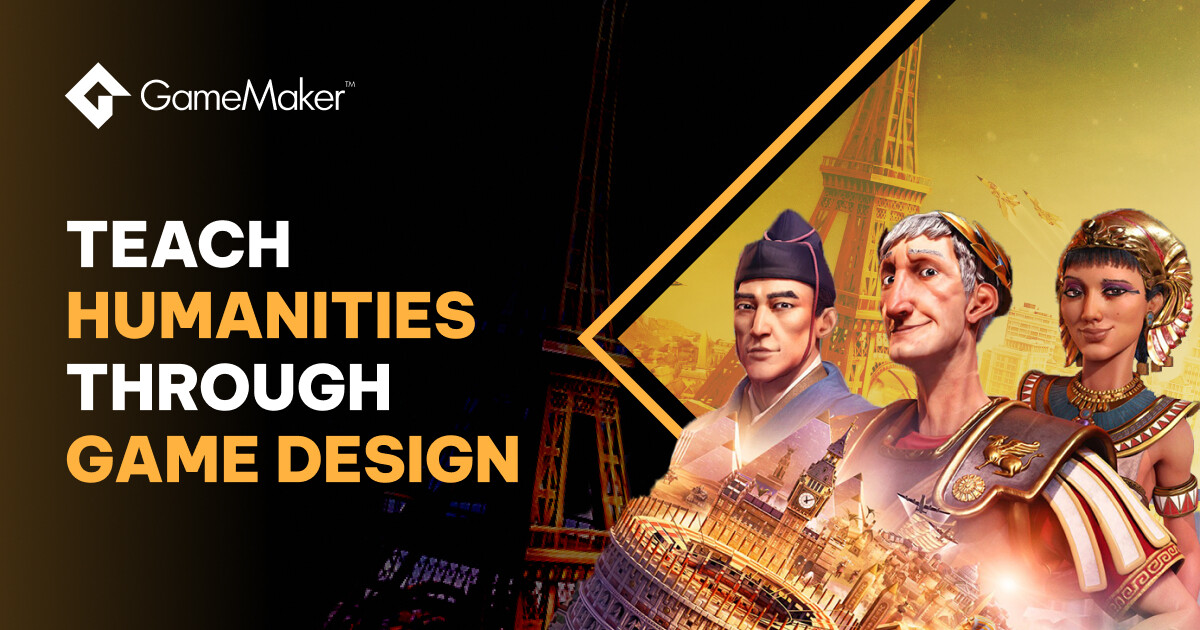Not every child loves learning about history. Some just don’t have a flair for art. Others can’t find their country on a map and wouldn’t care to try.
As a teacher, you know that not every student in your class is going to instantly connect with your subject. You’ve probably tried group activities, field trips, and documentaries - but have you considered game design?
What are the humanities subjects?
Humanities are the academic subjects that focus on human society and culture, including:
- History
- Philosophy and religion
- Languages
- Geography
- Performing arts (ie. music and dance)
- Visual arts (ie. painting and photography)
- Language arts (ie. literature and poetry).
Educating through game design
In 2019, 77% of game design teachers polled by GameMaker said that adding a game design element to their classroom was ‘extremely effective’ or ‘very effective’ at engaging students.
That’s hardly surprising: studies continue to chart the growing popularity and commercial success of video games, with a whopping 93% of UK children playing games to relax and socialise with friends. 66% of Americans say they play video games in their spare time, too.
Gamifying your lessons creates an immediate hook for your students to latch on to. If your class doesn’t react as enthusiastically to the Charge of the Light Brigade or the water cycle as you do, bringing game design into the mix can help gain and retain your students' attention.

Sid Meier’s Civilization VI, developed by Firaxis Games
Why game design and not just video games?
Adding video games to your classroom is a great way of engaging students, but what sets game design apart from simply using existing video games is the onus on students to research and understand the topics at hand.
Even without any knowledge of the world’s great leaders or their nation’s geography, anyone could still play an entry in the Sid Meier's Civilization series. But when you make your own empire-building strategy game, you need to get under the hood and understand these civilizations on a micro level if you want it to be a success.
Designing their own games puts students in the driver’s seat: it empowers them to decide exactly how they want to explore the subject, and gives them the creative license to express themselves in their own voice.
How to use game design in humanities classes
Using the list of humanities subjects we covered earlier, here’s a few suggestions on how you could incorporate game design into your classes:
- History: Create a game about an aspect of life in the Roaring Twenties, such as the dance scene, prohibition, or the construction of the Empire State Building.
- Philosophy and religion: Create a game that demonstrates a biblical or philosophical teaching, such as ‘No man ever steps in the same river twice, for it is not the same river and he is not the same man’.
- Languages: Make a matching game where players have to pair the correct word or expression to its English equivalent.
- Geography: Create a game about adverse weather that explores their impact on lives and the environment.
- Performing arts: Recreate a scene from a famous play through an appropriate video game genre.
- Visual arts: Make a simple 2D platformer inspired by any art movement, such as the cubist, surrealist, or pop art movements.
- Language arts: Recreate a scene from a popular book through an appropriate video game genre.
The possibilities are endless, and we encourage you to adapt these examples to create the perfect lessons for your students.

The GameMaker engine
How GameMaker can help
GameMaker is the industry’s premier 2D game engine. It uses its own coding language called GameMaker Language (GML), which comes in two different versions:
- GML Visual lets your class create your own game from pre-coded building blocks. Students can make a game in a matter of minutes, even before they’ve learned how to code.
- GML Code allows your class to write their own code and take full control of their creations. Students learn how to program their own games from scratch.
Students can even share their games with each other by exporting their completed projects to Opera’s GX.games platform.
Sign up for your free GameMaker Education License and get instant access to all the tools and resources you need to teach game design to any age group.
Happy GameMaking!


